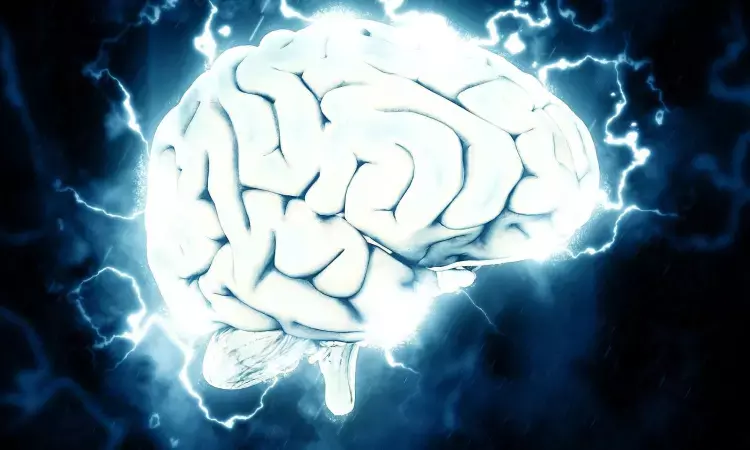- Home
- Medical news & Guidelines
- Anesthesiology
- Cardiology and CTVS
- Critical Care
- Dentistry
- Dermatology
- Diabetes and Endocrinology
- ENT
- Gastroenterology
- Medicine
- Nephrology
- Neurology
- Obstretics-Gynaecology
- Oncology
- Ophthalmology
- Orthopaedics
- Pediatrics-Neonatology
- Psychiatry
- Pulmonology
- Radiology
- Surgery
- Urology
- Laboratory Medicine
- Diet
- Nursing
- Paramedical
- Physiotherapy
- Health news
- Fact Check
- Bone Health Fact Check
- Brain Health Fact Check
- Cancer Related Fact Check
- Child Care Fact Check
- Dental and oral health fact check
- Diabetes and metabolic health fact check
- Diet and Nutrition Fact Check
- Eye and ENT Care Fact Check
- Fitness fact check
- Gut health fact check
- Heart health fact check
- Kidney health fact check
- Medical education fact check
- Men's health fact check
- Respiratory fact check
- Skin and hair care fact check
- Vaccine and Immunization fact check
- Women's health fact check
- AYUSH
- State News
- Andaman and Nicobar Islands
- Andhra Pradesh
- Arunachal Pradesh
- Assam
- Bihar
- Chandigarh
- Chattisgarh
- Dadra and Nagar Haveli
- Daman and Diu
- Delhi
- Goa
- Gujarat
- Haryana
- Himachal Pradesh
- Jammu & Kashmir
- Jharkhand
- Karnataka
- Kerala
- Ladakh
- Lakshadweep
- Madhya Pradesh
- Maharashtra
- Manipur
- Meghalaya
- Mizoram
- Nagaland
- Odisha
- Puducherry
- Punjab
- Rajasthan
- Sikkim
- Tamil Nadu
- Telangana
- Tripura
- Uttar Pradesh
- Uttrakhand
- West Bengal
- Medical Education
- Industry
Healthy Eating and Intermittent Fasting Boost Weight Loss and Brain Health in Older Adults: Study

USA: An article in Cell Metabolism examined the effects of intermittent fasting (IF) and healthy low-calorie (HL) diets over eight weeks on brain health in cognitively intact, late middle-aged, and older individuals with insulin resistance (IR).
The researchers revealed that both an intermittent fasting diet and a standard healthy living diet emphasizing nutritious foods result in weight loss, decreased insulin resistance (IR), and slower brain aging in older overweight adults with IR. However, neither diet influenced biomarkers associated with Alzheimer's disease (AD).
The study presented a methodological framework that incorporates various brain and cognitive metrics to thoroughly evaluate the impact of diet on brain health. Results showed that both diets yielded similar benefits on neuronal insulin resistance biomarkers (NDEV), BrainAGE, and magnetic resonance spectroscopy (MRS) glucose levels, underscoring these measures as effective indicators of the brain’s dietary response.
In an eight-week randomized clinical trial, Dimitrios Kapogiannis, Intramural Research Program, Laboratory of Clinical Investigation, National Institute on Aging, and the Department of Neurology at Johns Hopkins University et. al. found 40 cognitively intact older adults with insulin resistance. The study assessed the effects of 5:2 intermittent fasting and a healthy living diet on brain health.
It was found that despite intermittent fasting leading to greater weight loss, both diets similarly improved insulin signaling biomarkers in neuron-derived extracellular vesicles, reduced the brain-age gap (indicating slower biological brain aging) on MRI, lowered brain glucose levels on magnetic resonance spectroscopy, and enhanced blood biomarkers for carbohydrate and lipid metabolism.
Changes in cerebrospinal fluid biomarkers for Alzheimer’s disease were minimal. Both diets enhanced executive function and memory, with intermittent fasting showing greater benefits in certain cognitive areas. Exploratory analyses revealed that sex, body mass index, and genotypes of apolipoprotein E and SLC16A7 influenced the diets' effects.
The key findings of the research were:
- The 5:2 intermittent fasting diet led to more weight loss in 8 weeks compared to a healthy living diet.
- Both diets reduced neuronal insulin resistance and slowed brain aging.
- Both diets improved memory and executive function, with greater improvement seen in the 5:2 intermittent fasting group.
- Neither diet affected biomarkers of Alzheimer’s disease.
It was concluded that the study offers a framework for evaluating the impact of dietary interventions on the brain and encourages additional research on intermittent fasting and continuous diets to optimize brain health.
Reference
Kapogiannis D, Manolopoulos A, Mullins R, Avgerinos K, Delgado-Peraza F, Mustapic M, Nogueras-Ortiz C, Yao PJ, Pucha KA, Brooks J, Chen Q, Haas SS, Ge R, Hartnell LM, Cookson MR, Egan JM, Frangou S, Mattson MP. Brain responses to intermittent fasting and the healthy living diet in older adults. Cell Metab. 2024 Jul 16:S1550-4131(24)00283-3. doi: 10.1016/j.cmet.2024.07.012. Epub ahead of print. Erratum for: Cell Metab. 2024 Jun 19:S1550-4131(24)00225-0. doi: 10.1016/j.cmet.2024.05.017. PMID: 39019039.
Nidhi Srivastava is a dietician. She holds a post-graduate degree in Nutrition and Dietetics from MRIIRS. With a profound passion for utilizing nutrition and lifestyle modifications to manage diseases, she is dedicated to advancing the field through rigorous research and fact-checking. Her expertise lies in evidence-based practice, ensuring the highest standards of dietary health and wellness.
Dr Kamal Kant Kohli-MBBS, DTCD- a chest specialist with more than 30 years of practice and a flair for writing clinical articles, Dr Kamal Kant Kohli joined Medical Dialogues as a Chief Editor of Medical News. Besides writing articles, as an editor, he proofreads and verifies all the medical content published on Medical Dialogues including those coming from journals, studies,medical conferences,guidelines etc. Email: drkohli@medicaldialogues.in. Contact no. 011-43720751


